1. Growth in gaming = growth in gamification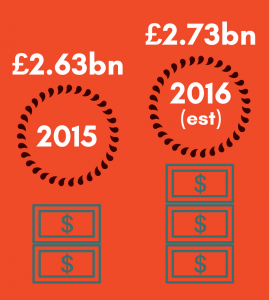
Projections for 2016 show that the growth of the gaming industry is simply not stopping. The market grew from £2.63 billion in 2015 to £2.73 billion in 2016 and there’s no indications to suggest the trend won’t continue into 2017.[i] But what does this mean for gamification in the education and training industry? It’s suggests that there is evident growth in the demand for gaming and workers will soon begin expecting high-level engaging learning formats.
2. Post-work hobby
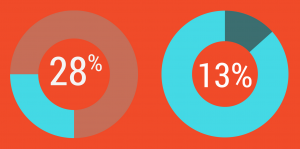 Not only is the industry growing, research shows that current gamers are spending a considerable amount of time playing video games. A study in July 2016 showed that 28% of respondents played games 2-4 days a week, compared to only 13% who played once a week.[ii] This suggests that gaming is becoming part of everyday life. The introduction of gamification into the workplace is likely to be welcomed to create a varied and interesting experience when developing skills.
Not only is the industry growing, research shows that current gamers are spending a considerable amount of time playing video games. A study in July 2016 showed that 28% of respondents played games 2-4 days a week, compared to only 13% who played once a week.[ii] This suggests that gaming is becoming part of everyday life. The introduction of gamification into the workplace is likely to be welcomed to create a varied and interesting experience when developing skills.
3. Games are fun!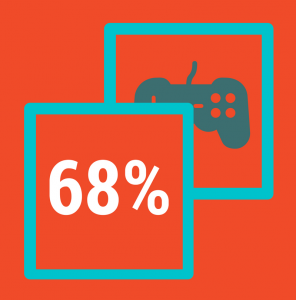
The same research highlights that 68% of internet users aged 16+ agreed that “playing games online can be fun”. Providers of eLearning have taken advantage of this fact by introducing the key mechanics of gaming which are thought to make the learning experience more interesting and exciting. For example, most modern video games will involve the concept of progressing through levels and so this has become a popular mechanic in gamification; providing end-users with a sense of accomplishment.
4. Screen obsession
Although a well-established fact in 2016, it’s worth pointing out that 90% of all media interactions are screen-based and 38% are on smartphones.[iii] This is important to remember when considering the effectiveness of eLearning versus face-to-face training. Due to our media habits, most employees will be accustomed to using screens to absorb information. Therefore, ensuring gamification is mobile-responsive will only enhance the interactivity of the learning process.
5. Never too old
The focus of concern for most organisations when considering gamification is whether it alienates older employees. Although the perception tends to be that gaming is reserved for the millennial generation, the average gaming age in the UK is still around 35 years old.[iv] We all have individual learning preferences. But the introduction of gamification into many organisations has proved that game mechanics used such as point systems, challenges and progression are all simple elements that most users will find curiosity and enjoyment in which will encourage them to engage with the learning content.
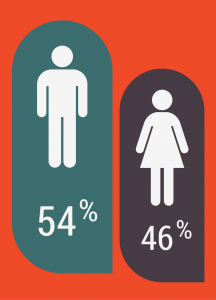
6. Balancing genders
Furthermore, men are stereotypically perceived to be more keen gamers than women but research shows that an equal number of both sexes own game consoles in 2016, with 54% of respondents being men and 46% being women.[v] These findings should bring confidence to organisations that both genders will enjoy the experience of learning through gamification.
7. It’s all about engagement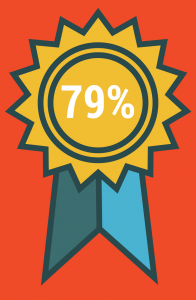
Finally, games are proven to be more engaging that other formats of learning. A study showed that 79% of participants said they wold be “more productive and motivated if their learning environment was more like a game”.[vi] Rather than logging in to complete boring modules of text-based eLearning, introducing different gamification creates a sense of intrigue and interestingly, competition, within an organisation. If workers know there are badges or medals to be awarded for participation, they are likely to be more motivated to engage and collaborate socially with colleagues.
Already started introducing gamification into your organisation? Or unsure on how it can benefit you? Check out our bespoke pages to see the cool gamification we’ve made for our customers or contact us to have chat.
References:
[i] Mintel -Video Games and Consoles – UK – October 2016
[ii] Mintel -Video Games and Consoles – UK – October 2016
[iii] Think With Google. Available from: https://www.thinkwithgoogle.com/infographics/multi-screen-world-infographic.html
[iv] Games Industry. Available from: http://www.gamesindustry.biz/articles/2016-11-16-ea-ceo-stresses-diversity-and-representation-in-games
[v] Mintel -Video Games and Consoles – UK – October 2016
[vi] Talent LMS. Available from: https://elearningindustry.com/top-gamification-statistics-and-facts-for-2013 www.talentlms.com
